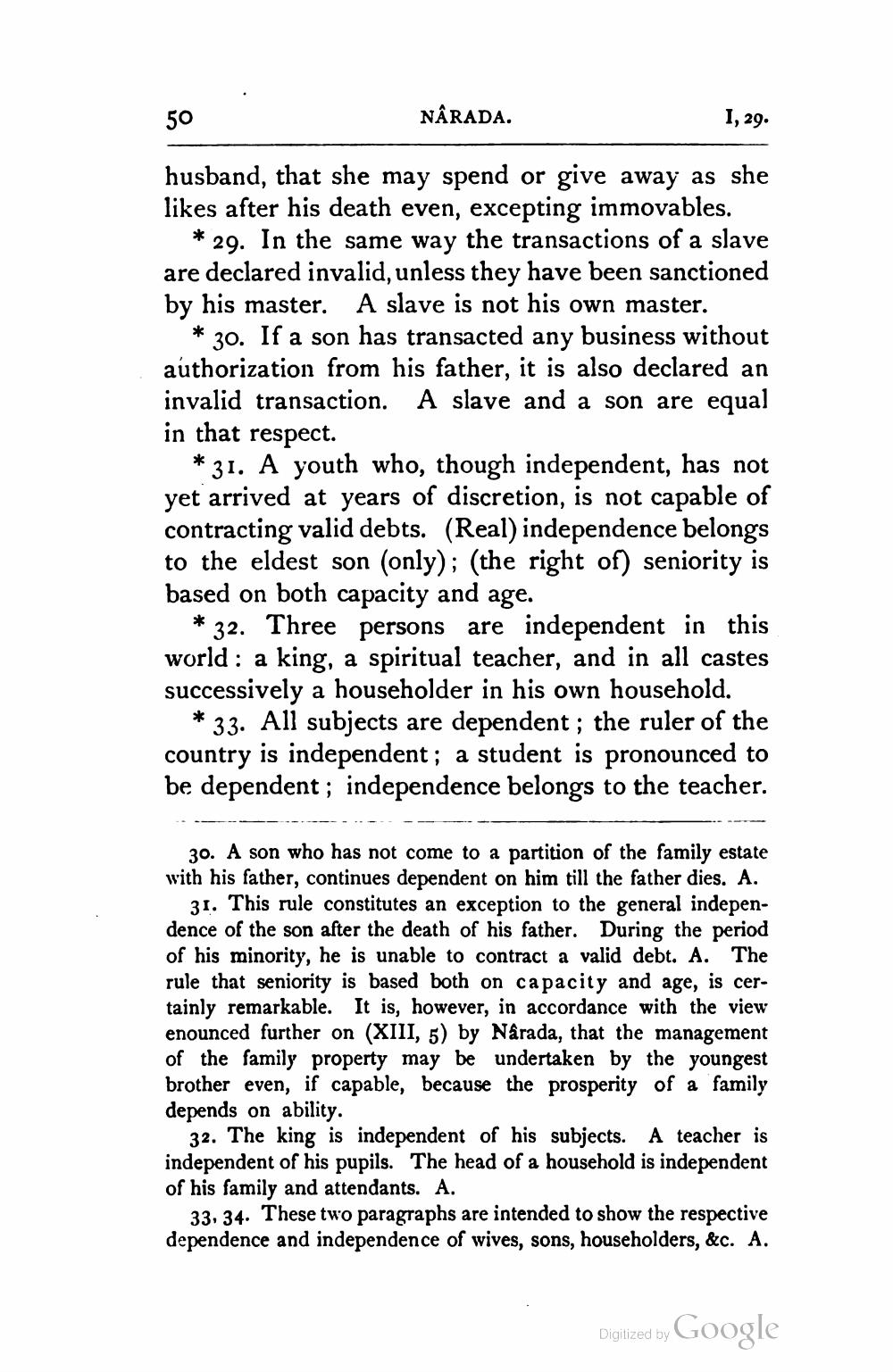________________
50
NARADA.
1, 29.
husband, that she may spend or give away as she likes after his death even, excepting immovables.
* 29. In the same way the transactions of a slave are declared invalid, unless they have been sanctioned by his master. A slave is not his own master.
* 30. If a son has transacted any business without authorization from his father, it is also declared an invalid transaction. A slave and a son are equal in that respect.
*31. A youth who, though independent, has not yet arrived at years of discretion, is not capable of contracting valid debts. (Real) independence belongs to the eldest son (only); (the right of) seniority is based on both capacity and age.
* 32. Three persons are independent in this world : a king, a spiritual teacher, and in all castes successively a householder in his own household.
* 33. All subjects are dependent; the ruler of the country is independent; a student is pronounced to be dependent; independence belongs to the teacher.
30. A son who has not come to a partition of the family estate with his father, continues dependent on him till the father dies. A.
31. This rule constitutes an exception to the general independence of the son after the death of his father. During the period of his minority, he is unable to contract a valid debt. A. The rule that seniority is based both on capacity and age, is certainly remarkable. It is, however, in accordance with the view enounced further on (XIII, 5) by Nárada, that the management of the family property may be undertaken by the youngest brother even, if capable, because the prosperity of a family depends on ability.
32. The king is independent of his subjects. A teacher is independent of his pupils. The head of a household is independent of his family and attendants. A.
33, 34. These two paragraphs are intended to show the respective dependence and independence of wives, sons, householders, &c. A.
Digitized by Google




